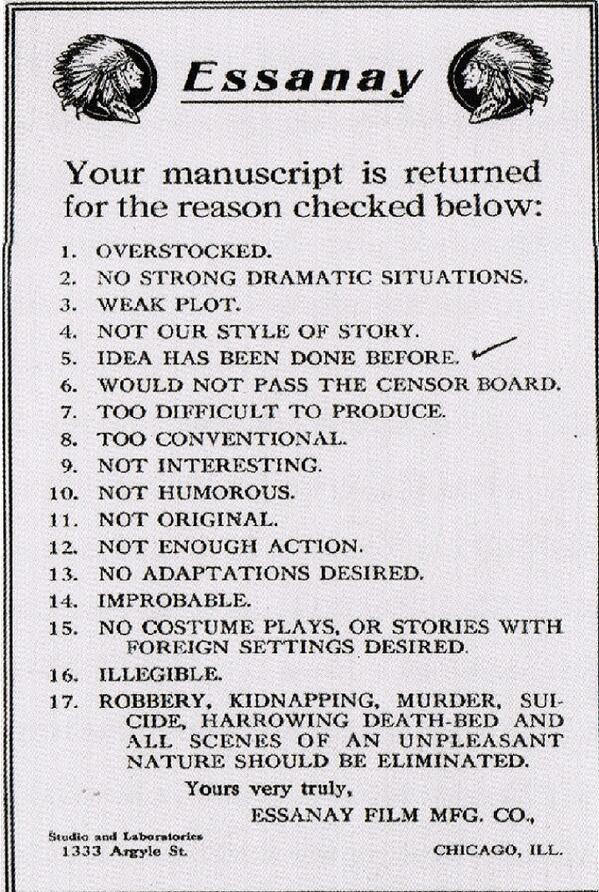
Born during the era of silent movies, the Essanay Film Manufacturing Company produced a series of Charlie Chaplin films in 1915, most notably including The Tramp. The Essanay document above shows us one thing: It didn’t take long for the film industry to master the cold rejection letter. Filmmakers could pour their heart and soul into writing a script. And what did they get in return? A list of 17 possible reasons to reject a manuscript, with a deflating check mark next to a particular item. That’s it. No further explanation offered.
Essanay closed in 1925, probably to the delight of some. You can still find some of Essanay’s films in our collection of 65 Free Charlie Chaplin Films Online.
If you would like to sign up for Open Culture’s free email newsletter, please find it here. Or follow our posts on Threads, Facebook, BlueSky or Mastodon.
If you would like to support the mission of Open Culture, consider making a donation to our site. It’s hard to rely 100% on ads, and your contributions will help us continue providing the best free cultural and educational materials to learners everywhere. You can contribute through PayPal, Patreon, and Venmo (@openculture). Thanks!
Related Content:
Gertrude Stein Gets a Snarky Rejection Letter from Publisher (1912)
Read Rejection Letters Sent to Three Famous Artists: Sylvia Plath, Kurt Vonnegut & Andy Warhol
No Women Need Apply: A Disheartening 1938 Rejection Letter from Disney Animation


Think of how many scripts a studio would receive at the dawn of the movie industry. It’s so new that everyone wants to get in, so they write up everything they can think of.
The studio probably had little choice but to create a form letter.
I don’t think the form letter nature of the rejection is necessarily impersonal. It sticks to objective criticisms. Probably you can’t pin a rejection on a single reason, but it is helpful to know which reason is closest to the truth.
It is hard to put into polite words a reason for rejection, so this list of reasons is helpful.
About a decade ago I prepared “truthful rejection slips” for fiction writers. It provides helpful feedback while not trying to sugar coat it. http://www.imaginaryplanet.net/weblogs/idiotprogrammer/2004/07/truthful-rejection-slips/